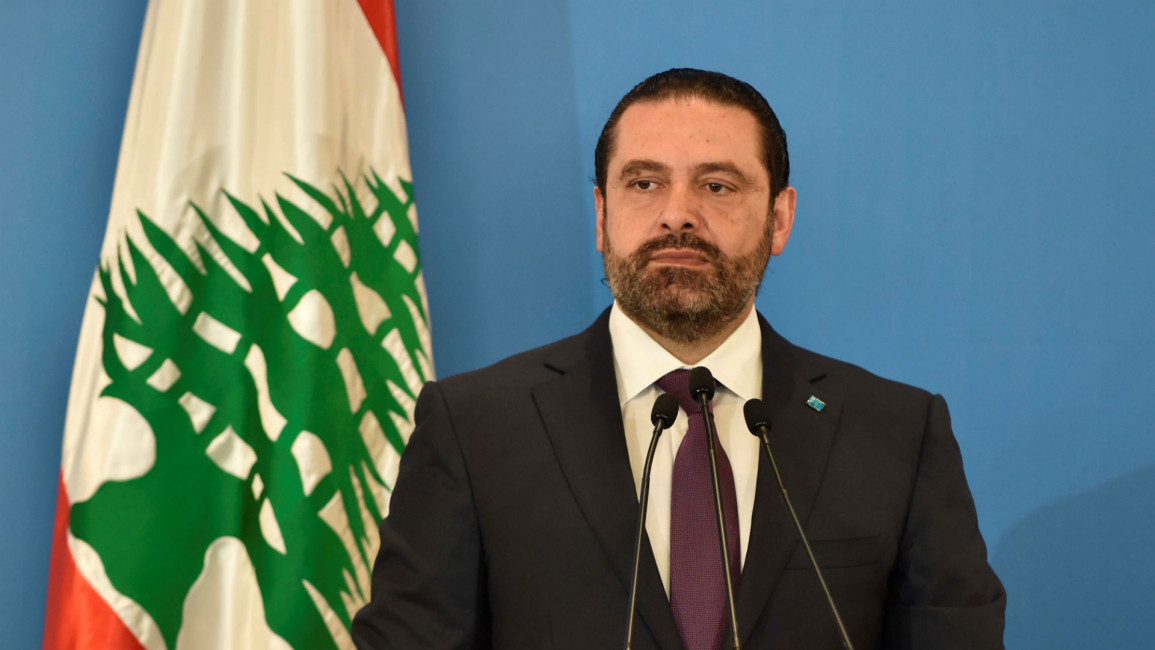Hariri meets Aoun to discuss Lebanon's government crisis
Lebanon's outgoing prime minister Saad Hariri, who resigned last week, said on Thursday that talks to form a new government are underway among political factions.
He made the comments after meeting with Lebanese President Michel Aoun, without providing any further details.
Aoun's office said the two discussed the "general situation" in Lebanon and efforts toward "finding a solution to the current government situation".
A day earlier, Hariri had met with leading politician Gebran Bassil, a son-in-law of Aoun, to discuss Lebanon's economic crisis.
"All ideas were put on the table for what would be best for Lebanon to come out of the economic crisis and what would best heed the calls made by protesters in the past three weeks," a source close to Hariri said.
It was his second meeting with Bassil in the past three days.
Aoun has yet to set a date for consultations with parliamentary bloc heads nine days after Hariri tendered his government's resignation on 29 October, in response to pressure from the street.
Read more: Lebanon's 'Arab Spring' shakes Iran and the region
Sparked on 17 October by a proposed tax on free calls made through messaging apps such as WhatsApp, the protests have morphed into a cross-sectarian street mobilisation against an entire political class that has remained largely unchanged since the end of the country's 1975-1990 civil war.
What started as a spontaneous, apolitical and leaderless popular movement is becoming increasingly organised, with activists coming together to synchronise marches and stunts across the country.
After blocking off roads for days, protesters have switched to preventing access to institutions seen as the most egregious examples of mismanagement and corruption.



